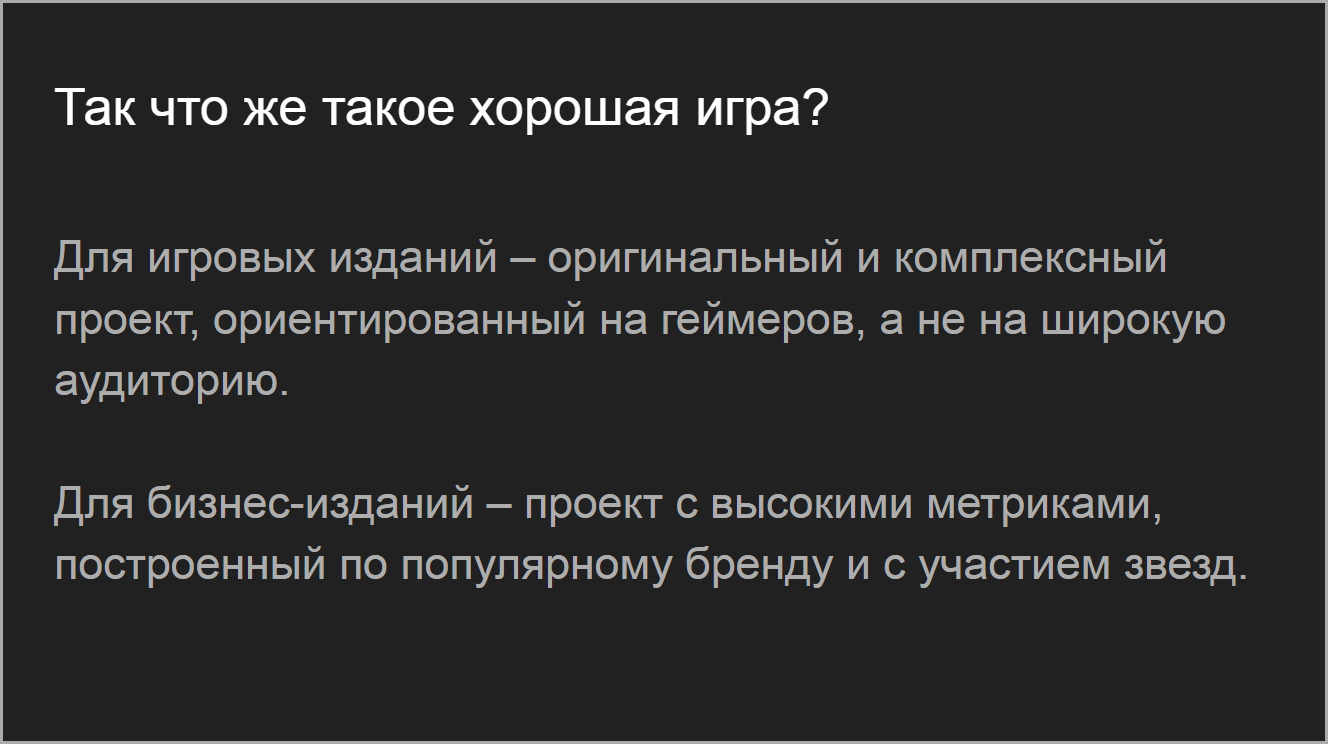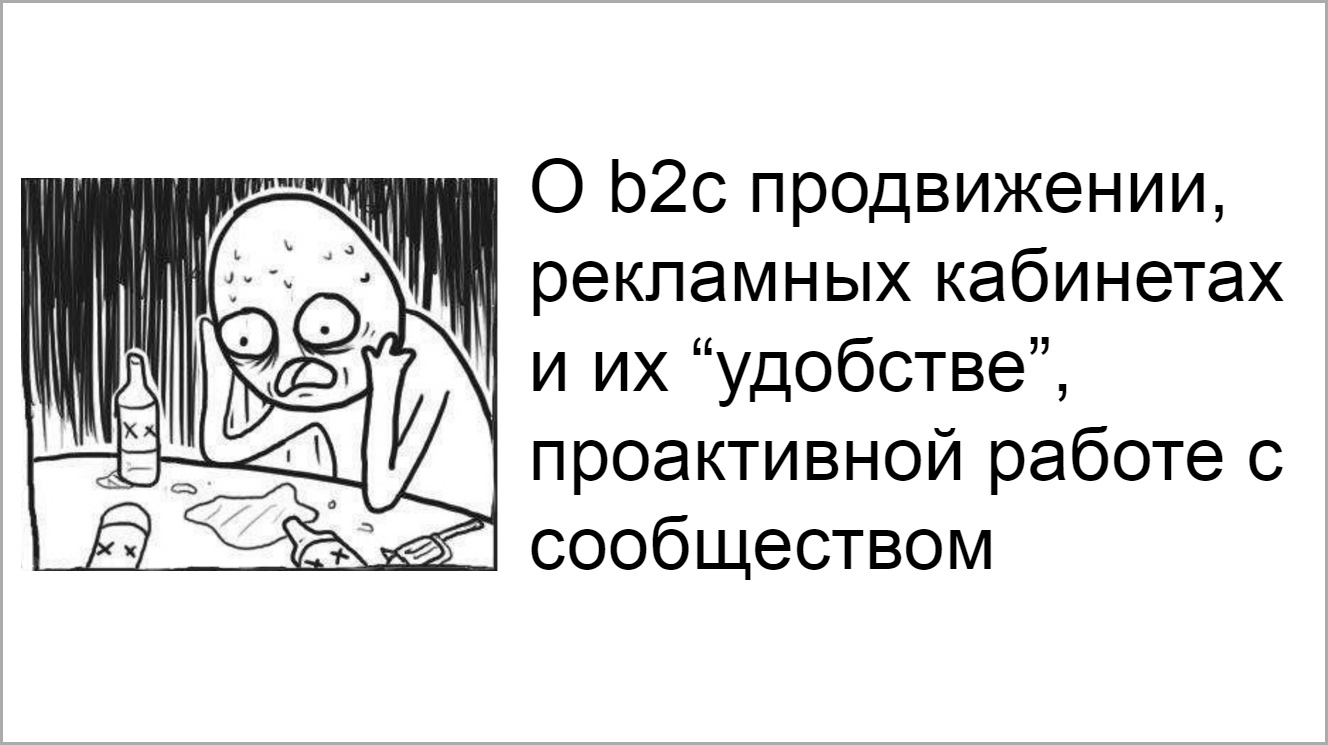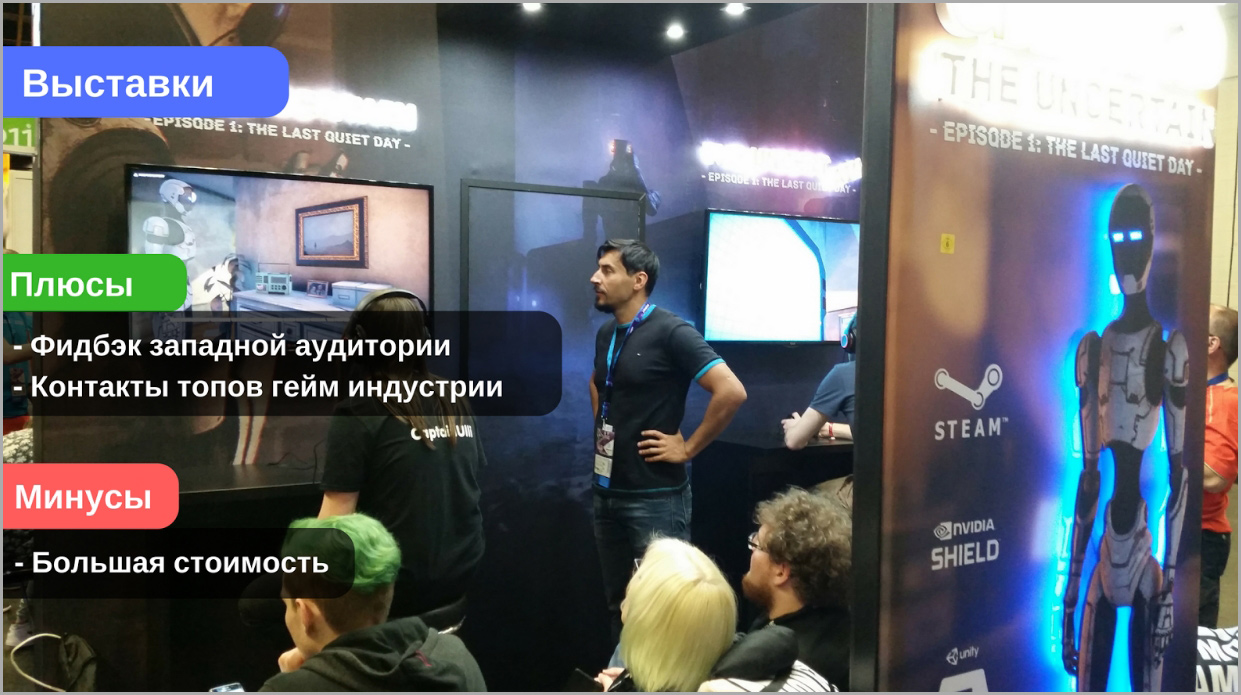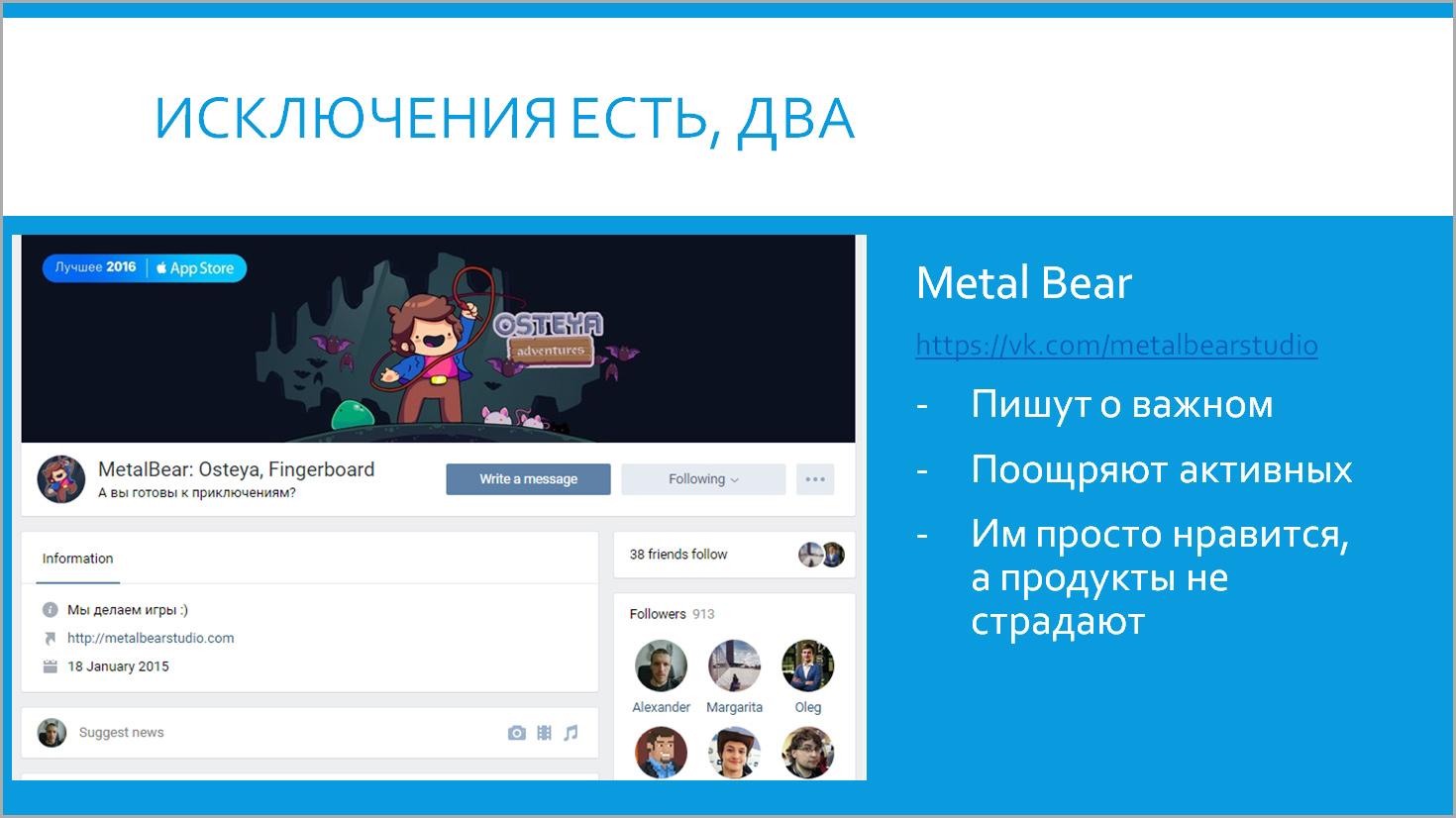On April 9, the Spb Gamedev Meet-up was held at the headquarters of the VKontakte social network. The issuing editor App2Top.ru with a story about how it was.
The VKontakte office occupies the top three floors of the Singer House. It is a seven-storey building in the very center of the city, topped with a glass dome with a globe at the top.
On the sixth floor, where the meeting is taking place, there is no show-off. Quite an ordinary IT space.
In a large bright room, an improvised lecture hall of the meetup, developers sat on ottomans. As often happens at chamber industrial events, many are well acquainted with each other. But Sergey Kharchenko, the author of the BizDev Warriors project and one of the organizers of the meeting, asks everyone to introduce themselves and tell who is doing what.
The range of classes of guests and speakers is wide. From organizing events for indie teams and creating slot machines to developing hardcore tactical games and educational VR programs.
The central theme of the meeting is promotion. The exception is the announcement of Maxim Babichev, but about him – at the very end.

– 1 –
The meetup begins with my report “What a journalist wants from a developer”.
The main thesis: the journalist wants, first of all, a good game. Only here the concept of “good” differs from edition to edition. For business media, a good game is a game with good metrics that earns a lot, for gaming publications it is a project aimed at their audience – gamers.
Projects for a wide audience (i.e., as a rule, free-play games for social and mobile platforms) go to gaming publications for articles, there is no point. They will be met coldly, and the developers will not receive the traffic on publications necessary for solving marketing tasks.

– 2 –
Then Sergey Bokarev from the AurumDust studio comes on stage, who is now busy with the role-playing tactics of Ash of Gods. Bokarev gives several examples of how he promoted games on social networks a year ago.
The “most primitive” posts worked well for him. For example, a picture with a game character could be hung up. Along with the picture, the post said that for every share or like, hitpoints would be removed from it. Users were asked to kill him.
Bokarev assures that such an interactive gave a much greater reaction than any post about the world (ent). “A primitive post received 5-10 times more engagement than any confused one,” says Sergey. However, he immediately clarifies that he is not ready for such posts today: “I can’t raise my hand to do this now, but it would be interesting to know the results if someone has done this recently.”
Another well-working technique “to preserve the involvement of players during long-term development” was a combination of contests with the assignment of “titles” to users.
It worked as follows: after the keys were drawn, the developers publicly assigned titles (through tagging) to new users who marked themselves with a like or comment during the contest.
“Thus, a person returned to the group at least once, and sometimes a passing player was involved in the life of the group for weeks,” Sergey notes. – “In general, the system was more complicated. She worked not only for contestants, but also for simple organic traffic. People who looked into the group in passing returned, received a second contact (free for us) and settled down with a certain degree of probability.”
In his speech, Sergey also notes that you should not be afraid or react painfully to haters. They make the best defenders of the game. “Haight is often extremely superficial. In most cases, it is very easy to involve a person in a project by providing more information,” explains Sergey. – “To solve the haight, you need to write in a personal account, communicate, talk about the game, but not argue.”
“It makes sense to work with hayter only if he belongs to the target audience of the project, and the project itself is good,” Bokarev also adds.

– 3 –
The most beautiful slides are from the report of the producer of The Unknown Alexey Surkov. He comes out with a warning of big spending on events.
When his studio ComonGames was just creating the game, the team actively traveled to conferences and exhibitions. At many of them, The Unknown had its own stand. The game was also regularly submitted to various project competitions, where it often won prizes and awards.
Thanks to participation in events and competitions, the game began to be recognized in the professional community. This created a deceptive impression that the game audience also knows the project, which was not true.
“The development of the game has actually paid off by now,” Alexey notes, “But not participation in exhibitions.” The stands at E3 alone cost several tens of thousands of dollars.
As Alexey admits, “exhibitions by themselves are not so effective in terms of attracting a gaming audience. They work well only in combination with other marketing activities. And if your task at the conference is only to attract publishers and partners, then you can simply show the game from a laptop screen.”

– 4 –
Alexander Mezin, an organizer of events for indie developers, hits the sick. He tells how independent domestic teams conduct their publics. In his opinion, they often do it “without an idea.”
Instead of regularly (at least a couple of times a week) talking about their project, they don’t report anything for months, they just repost other indie posts.
Mezin laughs that the groups of most domestic indie teams cannot be distinguished from each other today because of this. They write all about the same projects and regularly rummage through each other’s records.
There are exceptions. Alexander cites in his report three companies that are engaged in promotion correctly:
- AZAMATIKA regularly publishes hilarious content on its Peace Death game;
- Metal Bear is posted very often and always exclusively on business;
- NERDY YETIS’ main feature is the joint development of the game with the community.

– 5 –
Spb Gamedev Metup closes Maxim Babichev’s report. He says that VKontakte is currently preparing two new playgrounds.
The first is Direct Games: a platform for launching HTML5 games directly through a social network mobile application. It is close to launch. Its key difference from similar competitor sites is support for monetization through IAP.
The second is a downloadable application in which you can run games created for a social platform. “It provides ample opportunities for improvisation, for example, you can add downloadable desktop games to it,” Babichev also clarified.
This is where the meetup, which took two hours, ends. Babichev leads to show all the guests the main attraction of the office – the glass dome of the “Singer House”.
